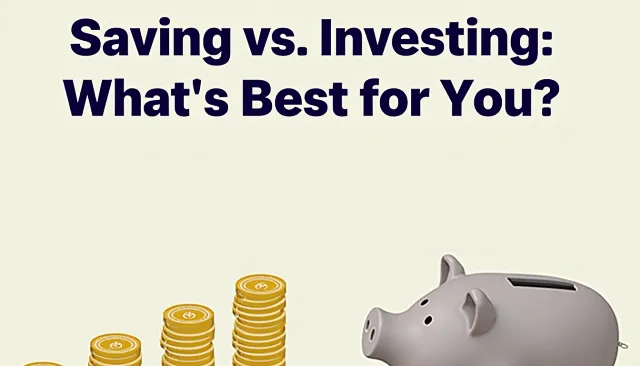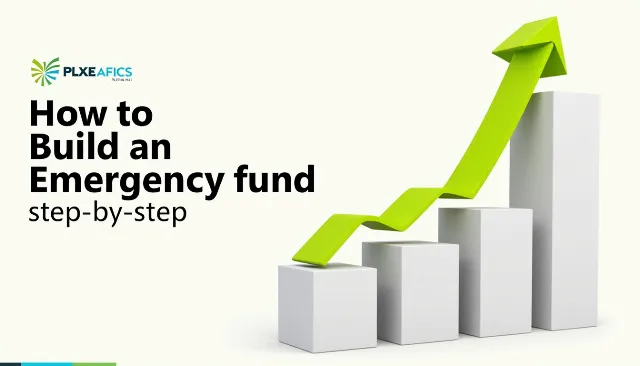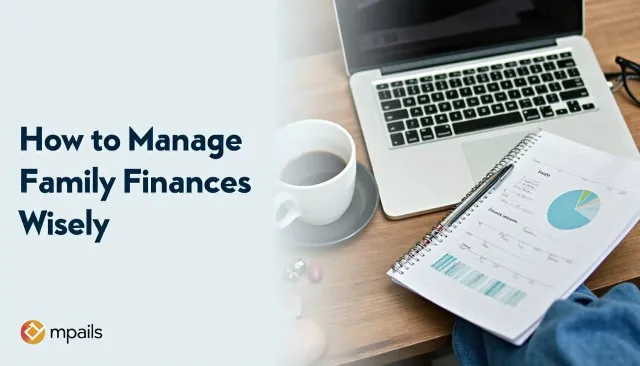1. Understanding What Investment Really Means
Investment means using your money to buy things that can grow in value over time. It could be putting money into stocks, bonds, gold, real estate, or even starting a small business. The main goal is to make your money work for you instead of just keeping it idle in a savings account. When you invest, your money can grow through interest, profits, or price increases.
In 2025, investing has become easier than ever. With online apps and platforms, anyone can start investing with just a few clicks. Even small amounts like ₹100 or $5 can be invested in mutual funds or digital gold. The idea is to start small, learn slowly, and stay consistent. Many young people today use investment apps to track their progress and learn about finance.

It’s important to understand that investing is not gambling. Gambling depends on luck, but investing depends on knowledge and planning. When you invest wisely, you build wealth for the future. Over time, your money can multiply through the power of compounding. So, learning what investment means is the first and most important step toward financial success.
2. Why You Should Start Investing Early
Starting early gives you a strong head start. When you invest at a young age, your money has more time to grow. This happens because of “compound interest” — it means you earn interest on both your money and the interest you’ve already made. For example, investing a small amount every month can turn into a large sum after several years.
In 2025, experts say that young people who begin investing early are more likely to achieve financial freedom. Many online tools now help beginners learn about saving and investing. By starting early, you can make mistakes when the risk is low and learn from them. Over time, your confidence grows along with your money.
Another benefit of starting early is flexibility. You don’t need to rush or take big risks to reach your goals. You can invest slowly and build your wealth step by step. Whether it’s for higher studies, buying a home, or retirement, early investment gives you time to plan smartly. So, the best day to start investing is today, not tomorrow!
3. Setting Clear Financial Goals Before You Invest
Before you start investing, it’s important to know why you are doing it. Are you saving for education, buying a car, or planning for retirement? Setting clear financial goals helps you choose the right investment options. For example, short-term goals like a vacation may need safer investments, while long-term goals like buying a house can allow higher risks.
In 2025, many apps and websites help people plan financial goals step by step. You can set your target amount, time period, and risk level. This makes investing simple and organized. Knowing your goal also keeps you motivated to save regularly. You’ll see your progress and stay focused.
Without clear goals, investing can become confusing and random. You may put money in many places without knowing why. This can lead to mistakes or losses. Having a goal is like having a map — it guides you in the right direction. So, take time to think, write down your goals, and start investing with purpose.
4. Building an Emergency Fund First
Before you begin investing, it’s wise to create an emergency fund. This fund is like a safety net that helps you in unexpected situations — such as job loss, illness, or sudden expenses. Experts suggest saving at least three to six months’ worth of living costs in a separate bank account. This ensures you don’t have to sell your investments when you face emergencies.
In 2025, having an emergency fund is more important than ever. Life has become unpredictable, and prices keep changing. A solid emergency fund gives you peace of mind. You can handle surprises without touching your long-term investments. Many people use digital wallets or savings accounts with easy withdrawal options to manage this fund.
Once your emergency fund is ready, you can invest freely without worry. It keeps your investment journey stable and stress-free. Remember, investment is for growth, while the emergency fund is for safety. Having both makes your financial life strong and balanced. So, before you invest, build your emergency shield first.
5. Knowing Your Risk Tolerance
Before investing, it’s important to understand how much risk you can handle. Risk tolerance means how comfortable you are with ups and downs in your investment value. Some people can handle big changes, while others prefer stable and safe returns. Knowing this helps you choose the right kind of investments for your personality and goals.
In 2025, there are online tools that can help you find your risk level. They ask simple questions like your age, income, and how you feel about losing money. If you are young, you can usually take a bit more risk because you have time to recover from losses. If you’re older, you might prefer safer options like bonds or fixed deposits. The idea is to balance risk and safety.
Understanding your risk tolerance keeps you calm during market changes. You won’t panic when prices drop or jump too quickly. Instead, you’ll know that it’s part of the process. By matching your investments with your comfort level, you can build confidence and grow your money steadily. So, take time to know your risk style before you begin investing.
6. Learn the Basics of Different Investment Options
Before jumping into investing, you need to learn about different types of investment options. Some common ones include stocks, mutual funds, real estate, gold, and bonds. Each of these has its own level of risk, return, and time period. Stocks can give high returns but can also fall quickly, while bonds are safer but slower to grow.
In 2025, information is easier to find than ever. You can learn about investing through videos, online courses, and apps. Many platforms even give you virtual money to practice investing before using real cash. This helps beginners understand how markets work without fear of losing money. Learning slowly helps you build strong knowledge and confidence.
Understanding different investment types also helps you make better choices. You’ll know where to put your money based on your goals and comfort level. A mix of different options, like stocks and bonds, can give both growth and safety. So, before you invest, learn the basics — it’s your best protection and your strongest start.
7. How to Start Investing with Small Amounts
You don’t need a lot of money to start investing. In 2025, many platforms allow you to begin with just a small amount — sometimes as low as ₹100 or $5. This makes investing easy and accessible for everyone, including students and beginners. The key is to start early and keep adding more over time.
Small investments grow through consistency and patience. You can use a plan called SIP (Systematic Investment Plan) to invest a fixed amount every month. It helps you build the habit of saving and investing regularly. Even small steps, when taken regularly, can lead to big results over time because of compounding — where your money earns more money.
Starting small also means less pressure. You can learn how the market works, understand your comfort level, and make changes if needed. Once you feel confident, you can increase your investment. Remember, it’s not about how much you start with, but how regularly you invest. Every coin counts when you start early and stay steady.
8. Importance of Diversification in Your Portfolio
Diversification means not putting all your money in one place. It’s like the saying, “Don’t keep all your eggs in one basket.” When you spread your money across different types of investments — like stocks, bonds, gold, and real estate — you reduce the risk of losing everything if one fails. It helps keep your overall portfolio safe and balanced.
In 2025, markets move quickly, and no one can predict what will rise or fall. That’s why diversification is more important than ever. Many investment apps now help you diversify automatically by suggesting a mix of assets based on your goals. This way, even if one investment doesn’t do well, others can balance it out.
A well-diversified portfolio gives you peace of mind and steady growth. It’s a smart way to handle both good and bad market times. Diversification protects your money while still allowing it to grow. So, always spread your investments wisely — it’s one of the golden rules for every beginner investor.
9. Understanding Stocks and How They Work
Stocks represent small pieces of ownership in a company. When you buy a stock, you own a part of that business. If the company grows and earns profits, the value of your stock increases too. This means you can make money when the stock price rises or when the company shares some profits with you as dividends. Stocks are a popular choice for investors who want long-term growth.
In 2025, investing in stocks has become easier and faster with online trading apps. You can buy and sell shares anytime from your phone. Many apps even explain stock performance in simple terms, using graphs and ratings. However, stock prices can change daily based on company performance and world events. So, patience and research are key to success.
Understanding how stocks work helps you make smart choices. You should study the company, read its reports, and know its future plans. Don’t follow others blindly — invest in what you understand. Stocks can give great returns, but they also come with risks. Start small, learn step by step, and stay updated about the market. Over time, you’ll see how powerful stock investing can be.
10. Exploring Safer Options Like Bonds and Fixed Deposits
Not everyone wants to take big risks in investing. For those who prefer safety, bonds and fixed deposits are great options. A bond is like giving a loan to a company or government, and they pay you back with interest. A fixed deposit (FD) is when you keep your money in the bank for a set time and earn a fixed interest rate. These are perfect for beginners who want stable and secure returns.
In 2025, many banks and financial apps offer flexible FDs and government bonds. You can invest for short or long terms based on your goals. While the returns are lower than stocks, these options protect your money from market ups and downs. Bonds and FDs are great for building trust and learning discipline in investing.
The best strategy is to mix safe and risky investments. That way, you get steady returns from safe options and growth from higher-risk ones. Bonds and FDs can give you peace of mind, especially during uncertain market times. If you’re just starting your investment journey, begin with these safer choices before exploring bigger opportunities.
11. The Role of Mutual Funds and ETFs in 2025
Mutual funds and ETFs (Exchange-Traded Funds) are simple ways to invest without needing to pick individual stocks. They collect money from many investors and invest it in a mix of assets like stocks, bonds, or gold. This helps beginners because professionals manage these funds for you. It’s like joining a group investment that spreads risk and saves you time.
In 2025, mutual funds and ETFs are among the most popular choices for new investors. Many platforms allow you to start with small amounts, sometimes even ₹100 or less. You can choose from different types — some are for growth, while others are for safety. ETFs are especially useful because they can be bought and sold on stock markets like regular shares, giving more flexibility.
These options make investing simple, affordable, and smart. They help beginners learn how markets work while reducing risk through diversification. You can check past performance, ratings, and goals before investing. Mutual funds and ETFs are perfect stepping stones for anyone who wants to grow their money steadily without handling too many details.
12. How to Use Digital Investment Platforms Wisely
Digital investment platforms have changed the way people invest. Today, you don’t need to visit banks or brokers. You can open an account, choose investments, and track your money—all from your smartphone. In 2025, these platforms use smart technology to suggest the best options for your goals and risk level. They even remind you to invest regularly through automatic plans.
While digital tools make life easier, it’s important to use them wisely. Always choose trusted platforms with strong security systems. Check reviews, licenses, and customer support before linking your bank account. Be cautious of fake apps or unrealistic promises of high returns. Remember, if something sounds too good to be true, it probably is.
Digital investing is powerful when used carefully. Learn how to read the data these apps show you, like charts and performance reports. Start with small investments and explore features slowly. Technology can help you grow your wealth, but smart habits will protect it. So, invest digitally—but always with care and awareness.
13. Keeping Emotions Away from Financial Decisions
Investing can sometimes feel exciting or scary, but it’s important not to let emotions control your decisions. Fear and greed can make beginners buy when prices are high or sell when prices drop. This often leads to losses. Staying calm and logical is one of the most important lessons for new investors in 2025.
In today’s fast-moving markets, news, social media, and friends’ opinions can influence you. It’s easy to get caught up in trends or rumors. However, making investment choices based on emotions rather than research can harm your money. Instead, focus on your goals, your risk tolerance, and your plan.
A smart investor learns to be patient. They stick to long-term plans even when markets fluctuate. Regularly reviewing your investments is fine, but impulsive decisions should be avoided. By controlling emotions, you can make rational choices, protect your money, and grow wealth steadily. Emotional discipline is as important as knowledge in investing.
14. Regularly Reviewing and Rebalancing Your Investments
Investing is not a one-time activity. Markets change, and so do your financial needs. That’s why it’s important to review your portfolio regularly and make adjustments. Rebalancing means shifting money between different assets to maintain the right balance according to your goals and risk level.
In 2025, online platforms and apps make reviewing easy. They can show you the performance of your stocks, mutual funds, or other investments. If one investment grows faster, it may become too big a part of your portfolio. Rebalancing ensures you don’t take too much risk or miss opportunities in other areas.
Regular review also helps you stay focused on your long-term objectives. You can make small changes instead of reacting to short-term market movements. This practice keeps your investments aligned with your goals and improves your chances of achieving them. Consistency in review and rebalancing is a key habit of successful investors.
15. Avoiding Common Investment Mistakes Beginners Make
Beginners often make simple mistakes that can reduce their returns. Some common ones include investing without a plan, chasing high returns, or ignoring risks. Another mistake is not researching the company or fund before investing. Learning about these mistakes can save you from future losses.
In 2025, information is available online to help you avoid mistakes. Take your time to understand each investment option. Start small, diversify, and follow a consistent plan. Don’t follow others blindly, and don’t get tempted by promises of fast money. Mistakes are part of learning, but avoiding them early gives you a strong advantage.
Being aware of errors also builds confidence. You learn to think logically, take informed decisions, and stay calm during market ups and downs. Smart beginners focus on steady growth rather than instant profits. Avoiding common pitfalls is one of the easiest ways to become a successful investor over time.
16. Understanding the Impact of Taxes on Your Returns
Taxes can affect how much you earn from investments. Different investments have different tax rules. For example, profits from stocks, mutual funds, or fixed deposits may be taxed differently. Knowing how taxes work in 2025 helps you plan better and avoid surprises at the end of the year.
Some investments offer tax benefits, like certain government bonds or retirement funds. Using these options wisely can save money and boost your overall returns. Many digital platforms now show estimated taxes on your investments, making it easy to plan ahead. Understanding taxes doesn’t have to be difficult — simple guides and apps can explain them clearly.
Planning for taxes ensures your investment strategy is efficient. You keep more of your earnings, follow rules, and reduce stress during tax season. Always consider taxes when choosing investments, and include them in your financial goals. Smart tax planning is a part of being a wise investor.
17. Learning About Sustainable and Green Investments
Sustainable or green investments focus on companies and projects that help the environment. This includes renewable energy, electric vehicles, or eco-friendly businesses. In 2025, many investors are choosing green options because they want to earn money while making the world better. These investments can grow as the demand for sustainable products increases.
Green investments are also supported by governments and organizations around the world. Some offer incentives, lower taxes, or bonuses for investing in eco-friendly projects. Digital platforms now list sustainable funds separately, making it easier for beginners to start. Even small contributions can help you make a difference while earning returns.
Investing sustainably gives you long-term growth and social impact. You support companies that care for the planet while building wealth. For beginners, it’s a great way to combine financial goals with values. Learning about sustainable investing helps you make choices that benefit both your future and the environment.
18. Following Market News Without Overreacting
Keeping up with market news is important, but reacting to every headline can be harmful. Prices of stocks, cryptocurrencies, and other investments often change daily. In 2025, news travels fast through apps and social media. Beginners might feel tempted to buy or sell quickly, but this can lead to losses.
It’s better to stay informed but remain calm. Read credible news sources, track your investments, and focus on long-term goals. Short-term market movements are normal and usually don’t affect long-term growth if your plan is strong. Avoid making decisions based on panic or hype.
By learning to follow news wisely, you become a smarter investor. You can make informed adjustments without unnecessary risk. Staying calm and patient helps your investments grow steadily, even during uncertain times. Knowledge is power, but patience ensures it works in your favor.
19. The Power of Patience and Long-Term Thinking
Investing is not a way to get rich quickly. In 2025, successful investors know the value of patience. Long-term thinking allows your investments to grow steadily over time. Stocks, mutual funds, and other assets can fluctuate, but staying invested for years usually results in better returns.
Patience also reduces stress. You don’t have to check prices constantly or react to every small change. Consistently investing small amounts over a long time, like through SIPs, can create significant wealth. Beginners who practice patience often see the benefits of compounding, where money earns money and grows faster.
Long-term thinking also helps you focus on your goals instead of short-term trends. Whether saving for education, retirement, or a home, sticking to your plan matters most. Patience combined with knowledge is a powerful tool that every beginner investor should embrace in 2025.
20. Planning for Future Financial Growth Beyond 2025
Investing is a journey, not a one-time task. Planning for the future ensures you can reach your financial goals. In 2025, it’s important to think about where you want to be in five, ten, or twenty years. This helps you decide how much to invest, which options to choose, and how to grow your wealth steadily.
Future planning includes setting milestones, tracking progress, and adjusting investments as needed. Digital platforms now provide tools to simulate future growth based on different scenarios. This helps beginners see the impact of small monthly investments over time. Planning keeps you motivated and organized.
By thinking beyond 2025, you build a secure financial future. You can handle emergencies, meet life goals, and even help your family. Smart planning ensures that your money works for you, not the other way around. The earlier you start, the stronger your financial foundation becomes.






